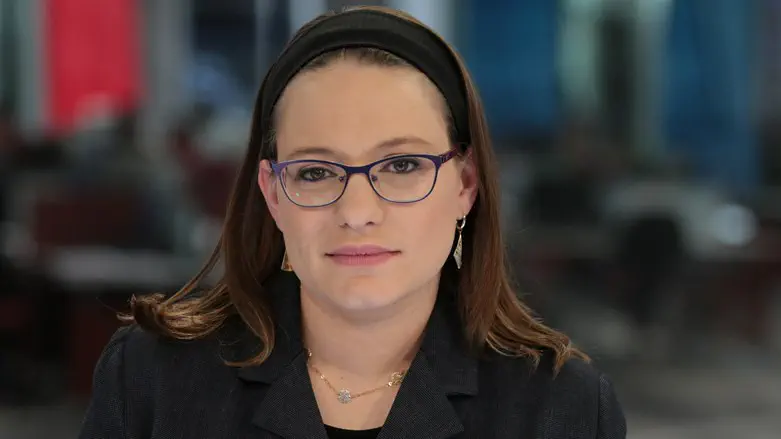
Translation by Yehoshua Siskin (http://inthelandoftheJews.blogspot.com)
1. Elizabeth, Queen of England, passed away at the age of 96. We live in an age when the idea of a queen or a king is typically symbolic and far removed from our daily experience. Yet In the month of Elul it is customary to say "the King is in the field." In other words, we feel God especially close to us at this time of year. Even so, for more than 70 years, until last night, there was an actual queen in Britain who wore a crown and lived in a palace protected by imperial guards.
Tzipi Hotovely, when she began her tenure as Israel's ambassador to England, met the queen together with her husband Or Alon. She spoke about the event with me last night.
"The queen met every new ambassador to England. We rode to the meeting in a horse-drawn carriage with royal guards. Everything was very festive. Or told her that in Judaism it is appropriate to say a blessing upon meeting a king or queen. He asked her if he could make the blessing and she agreed. He said the blessing out loud in Hebrew and immediately translated it into English: 'Blessed are You, O Lord our God, King of the universe, who gave of His glory to flesh and blood." The queen appeared to be deeply affected by these words, smiled, and thanked us.
And then my husband Or, at the end of our meeting, ignoring all protocol with a bit of Israeli chutzpah, asked what single piece of advice she would give based on her lifetime of experience. She thought for half a minute and said: 'One piece of advice? It's rather difficult to give only one.' Finally she answered: 'Since the outbreak of the coronavirus, we have learned that to invest in our relationships with family members and in our connections with other people is the most important thing in life.'
As we were leaving, a royal guard with reserved demeanor who had been accompanying us asked, 'What did she say?' We told him and have been telling this story to others ever since, how even the Queen of England thought that investing in family and friends was the most important thing in life."
Safety first, last and always
2. A few days ago, attorney Nurit Mamalia, who specializes in real estate law, was deeply moved by words from this week's Torah portion that she saw hanging in the offices of a contractor from the Shomron (Samaria). In each office, a sign in full view was displayed with the following words: "When you build a new house, you shall make a guard rail for your roof, so that you do not bring bloodguilt on your house if anyone should fall from it." By extension, such a warning is also applicable, of course, to those who construct the house or building itself; they should be provided with every safety measure necessary to prevent accidents.
Why don't we get excited when we put safety bars over our apartment windows? Why don't we feel holiness when we put a guard rail around our roof? In this week's Torah portion, this mitzvah -- which is not sufficiently known or appreciated -- appears. How simple, yet how often it is overlooked. Someone who builds or moves into a new house must first put a guard rail around the roof in order that no one should fall off.
Our commentators explain that such a cautionary measure pertains not only to a roof, but to any potential risk to which we are exposed or for which we are responsible. We regard affixing a mezuzah outside as the climactic moment upon entering a new house or office, and justifiably so. But concerning ourselves with the physical safety of those inside is a mitzvah of equal importance. When it comes to our cars, we observe such safety mitzvot when we wear our seat belts, or when we check engine oil and water levels and tire pressure. In a similar vein, those with a swimming pool are cautioned to put a fence around it for the sake of children who could accidentally fall in.
When it comes to our personal safety, it is clear that the Torah does not settle for half measures that are "good enough." Instead, the Torah admonishes us with these words: “Venishmartem meod lenafshoteichem" - Be very careful about your lives. Personal safety, represented by a guard rail on the roof, is not only a mitzvah, but one involving pikuach nefesh (saving life), and is thus of primary importance.